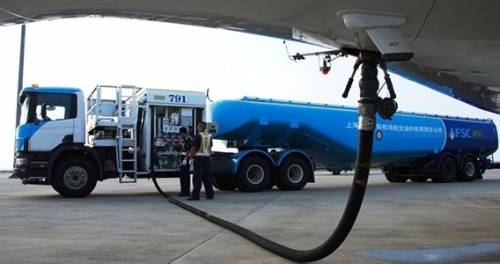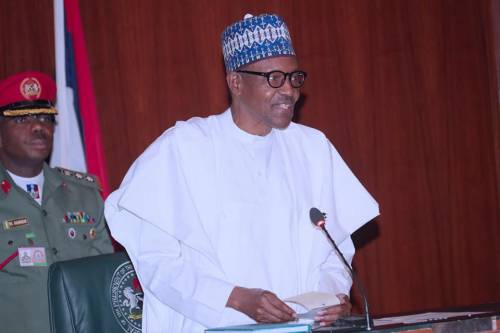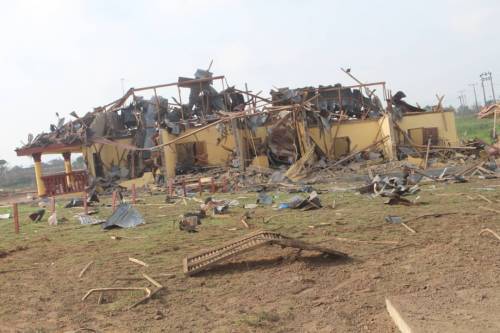Marketer Blames Taxes, Levies For High Cost Of Aviation Fuel In Nigeria
Marketers of aviation fuel have blamed excessive local levies and supply challenges for the high cost of the product in Nigeria.
The Guardian NG reports that besides a flat tax of N2.50, which is placed on a liter of jet fuel, other sundry fees are also levied on the product.
“The truth is that there are varying cost elements from the Federal Airport Authority of Nigeria (FAAN), in terms of ground rents, access permits for equipment, personal permits for fueling operations and fuel tax itself. All of these are heavy cost elements that are typical of our environment, making the cost higher compared to other African countries,” a marketer told the Guardian.
The marketer said they are also constrained by the non-production of a single liter of the product within the country: “It is really not the fault of marketers, but the fact that we have to import in the first place and then the issues of multiple charges that we have to push to the end-user.”
The Chief Operating Officer of CITA Petroleum Nigeria Limited, Olasimbo Betiku, said the major problem arises from the fact that the product is imported: “We have zero local refining capacity for the product and this is the number one cost-impacting factor. When supply and demand balance is impacted upon, the price will increase for the balance to be established, in our elementary economics.
“Secondly, importation transactions for jet fuel are dollar-denominated. So, if the dollar is scarce, it will definitely impact on our local cost. In addition, our global national infrastructural template; covering roads, ports, and pipelines among others, is challenged. Our ports were built when our population was around 55 percent of the present figure. So are roads and no pipelines to move the product.
“All the above extra financial commitments on logistics directly impact the cost of the product here. In addition, our industry is dollar-denominated. If our local currency is weak to a dollar, we pay more than other countries with healthier currency to a dollar. This is a factor that will make consumers pay relatively more.”
The cost of jet A1 is impacting negatively on airfares and on the operating expenses of aviation companies in Nigeria.
The burden of fueling eats up 35 to 40% of an aviation company’s cost of operation, according to analysts.
The Chief executive of an airline company said it takes between N800,000 and N1 million to fuel a Boeing 737 for two trips.
The operating cost of Med-View, a struggling, indigenous airline, increased from N21.8 billion to N30.9 billion for the year ending December 31st, 2017.
The Guardian NG reports that besides a flat tax of N2.50, which is placed on a liter of jet fuel, other sundry fees are also levied on the product.
“The truth is that there are varying cost elements from the Federal Airport Authority of Nigeria (FAAN), in terms of ground rents, access permits for equipment, personal permits for fueling operations and fuel tax itself. All of these are heavy cost elements that are typical of our environment, making the cost higher compared to other African countries,” a marketer told the Guardian.
The marketer said they are also constrained by the non-production of a single liter of the product within the country: “It is really not the fault of marketers, but the fact that we have to import in the first place and then the issues of multiple charges that we have to push to the end-user.”
The Chief Operating Officer of CITA Petroleum Nigeria Limited, Olasimbo Betiku, said the major problem arises from the fact that the product is imported: “We have zero local refining capacity for the product and this is the number one cost-impacting factor. When supply and demand balance is impacted upon, the price will increase for the balance to be established, in our elementary economics.
“Secondly, importation transactions for jet fuel are dollar-denominated. So, if the dollar is scarce, it will definitely impact on our local cost. In addition, our global national infrastructural template; covering roads, ports, and pipelines among others, is challenged. Our ports were built when our population was around 55 percent of the present figure. So are roads and no pipelines to move the product.
“All the above extra financial commitments on logistics directly impact the cost of the product here. In addition, our industry is dollar-denominated. If our local currency is weak to a dollar, we pay more than other countries with healthier currency to a dollar. This is a factor that will make consumers pay relatively more.”
The cost of jet A1 is impacting negatively on airfares and on the operating expenses of aviation companies in Nigeria.
The burden of fueling eats up 35 to 40% of an aviation company’s cost of operation, according to analysts.
The Chief executive of an airline company said it takes between N800,000 and N1 million to fuel a Boeing 737 for two trips.
The operating cost of Med-View, a struggling, indigenous airline, increased from N21.8 billion to N30.9 billion for the year ending December 31st, 2017.









Comments